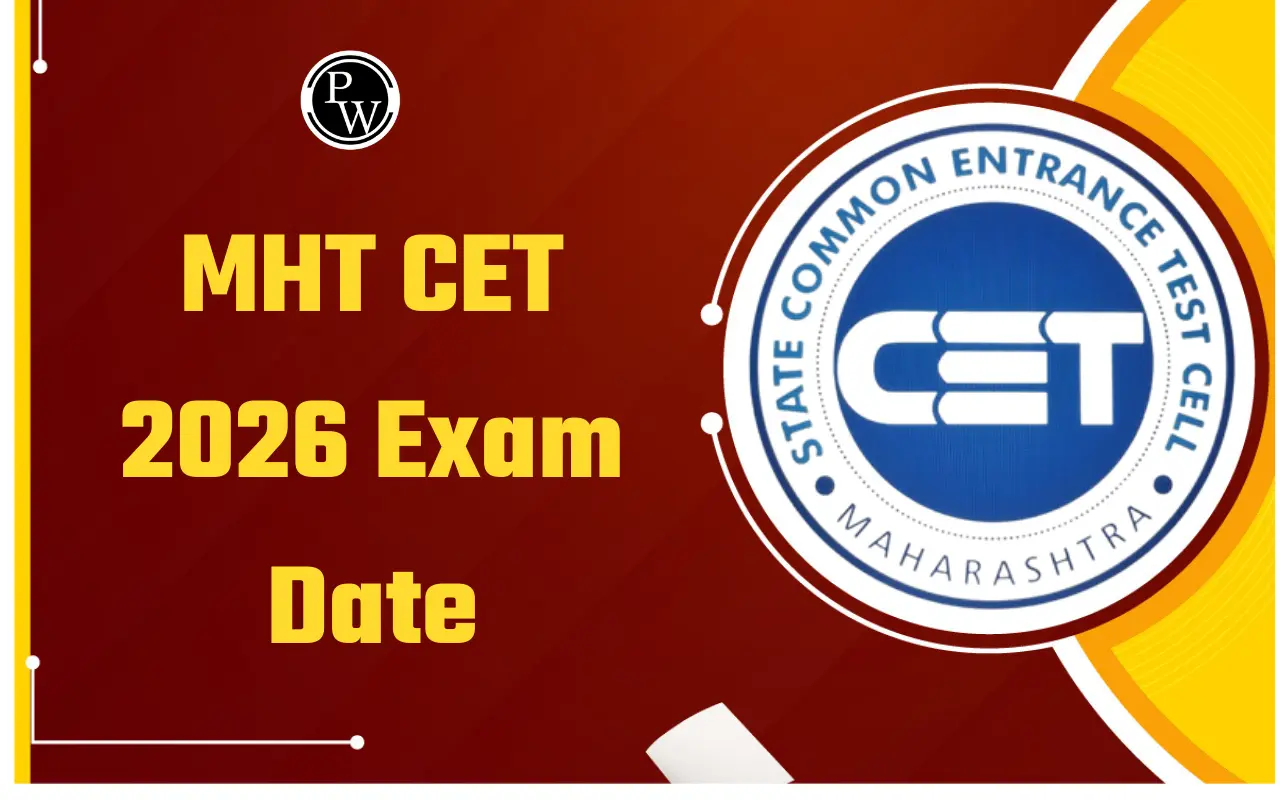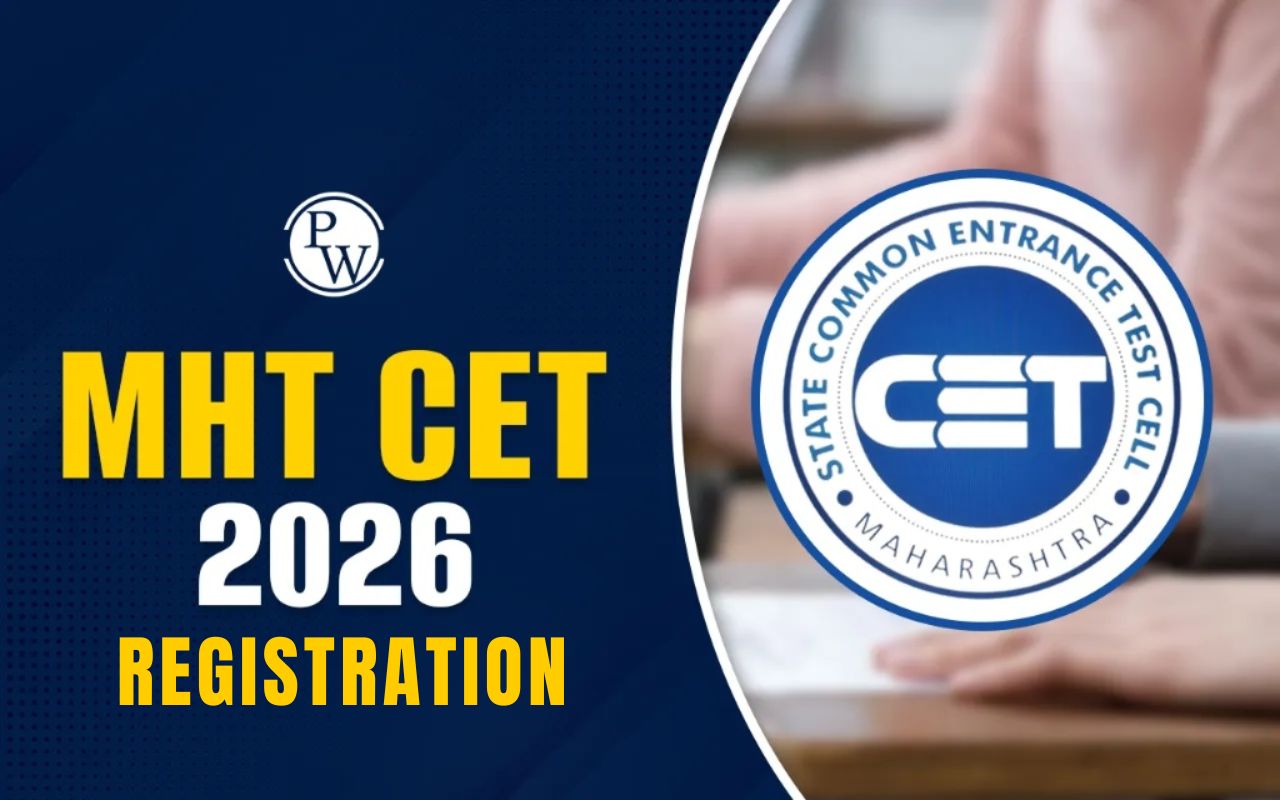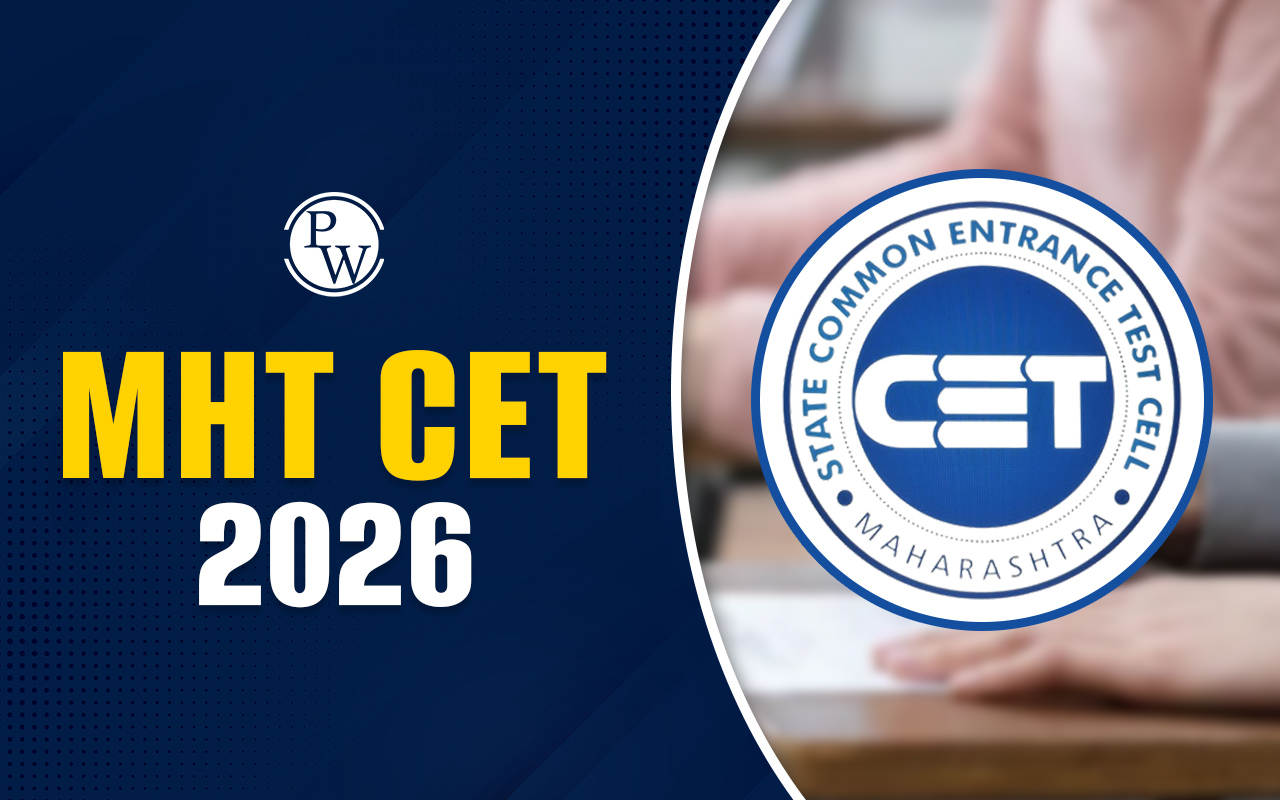
To Prepare for Maharashtra HSC Physics to Score Good Marks requires a strong understanding of key concepts, regular practice, and effective time management. Physics is a subject that combines theoretical knowledge with numerical problem-solving, so balancing both aspects is essential for success.
By focusing on important chapters, mastering formulas, and practicing extensively, you can build the confidence needed to perform well in the exam. With a well-planned study strategy and consistent revision, you can ensure high scores in HSC Physics. Here are some key steps to prepare for Maharashtra HSC Physics to Score Good Marks.How to Prepare for Maharashtra HSC Physics to Score Good Marks
To prepare for Maharashtra HSC Physics to score good marks, a well-structured study plan and thorough understanding of the concepts are crucial. Physics involves both theoretical knowledge and problem-solving skills, so focussing on both aspects is important. Below are some essential steps to prepare for Maharashtra HSC Physics to Score Good Marks:Keep Track of Time for Long Answers
During the exam, practice answering long questions efficiently. These often include derivations, explanations, and detailed solutions. Time yourself while practicing to avoid spending too much time on any one question.Use Visual Aids
Incorporating visual aids into your study routine can be a highly effective way to organize and remember information, especially in subjects like Physics where concepts can be complex. Here’s how visual aids like flowcharts, mind maps, and flashcards can enhance your preparation:- Flowcharts : Flowcharts are useful for breaking down processes or sequences in Physics, such as the steps in solving a numerical problem or understanding the flow of energy in a circuit. For example, you can create a flowchart to outline the process of solving a thermodynamics problem, starting from identifying given values to applying the right formula. This helps visualize the steps clearly and ensures you don’t miss any.
- Mind Maps : Mind maps allow you to connect related concepts and ideas visually, making it easier to see the relationships between different topics. For instance, when studying Magnetism, you can create a mind map with key topics like magnetic fields, electromagnetic induction, and Faraday’s law, showing how they link together. This method helps reinforce connections between concepts and boosts retention.
How to Prepare for Maharashtra HSC Biology to Score Good Marks
Focus on Important Chapters
To maximize your prepare for Maharashtra HSC Physics to Score Good Marks, it is crucial to focus on the chapters with higher weightage. Key topics such as Optics, Electricity, Magnetism, and Modern Physics often carry a significant portion of the exam marks. Here’s why these chapters are important and how to approach them effectively:- Optics : This chapter includes crucial concepts like reflection, refraction, lens formulas, and optical instruments. Questions on ray diagrams and the working of devices like microscopes and telescopes are frequently asked. Practice solving problems related to lens and mirror equations to ensure clarity.
- Electricity : This topic covers the foundation of electrical circuits, Ohm’s law, and the behavior of resistors in series and parallel. Learn how to solve numerical problems related to electrical power, energy, and circuit analysis. Be thorough with Kirchhoff’s laws, which are important for both conceptual understanding and problem-solving.
- Magnetism : Magnetic effects of current, electromagnetic induction, and the properties of materials under magnetic fields are common areas tested. Understanding the behavior of coils, solenoids, and how magnetic fields interact with electric currents is essential. Be prepared to answer questions on the functioning of devices like transformers and motors.
- Modern Physics : This chapter includes atomic models, nuclear physics, photoelectric effect, and quantum theory. It often carries substantial weight due to the combination of theoretical questions and application-based problems. Focus on the formulas related to nuclear reactions, half-life, and energy quantization, and practice problems from past papers.
Work on Presentation Skills
In Physics exams, how you present your answers can significantly impact your marks. A well-structured and clear response makes it easier for the examiner to understand and award marks. Here are some tips to enhance your presentation skills:- Step-by-Step Explanations : When solving numerical problems, always break down your solution into clear steps. Start by writing the given data, followed by the relevant formula, then proceed with the calculations. This method not only shows your approach but also makes it easier for the examiner to follow your thought process.
- Use Proper Units : Physics problems often involve different units, so it’s essential to include the correct units for all your answers. This shows attention to detail and prevents unnecessary mark deductions.
- Draw Neat Diagram s: Many Physics questions require diagrams such as ray diagrams in Optics, circuit diagrams in Electricity, or magnetic field lines in Magnetism. Always draw diagrams neatly, label all parts accurately, and use a pencil and ruler for clean lines. Diagrams can help you score additional marks if drawn correctly.
Use Visual Aids
Incorporating visual aids into your study routine can be a highly effective way to organize and remember information, especially in subjects like Physics where concepts can be complex. Here’s how visual aids like flowcharts, mind maps, and flashcards can enhance your preparation:- Flowcharts : Flowcharts are useful for breaking down processes or sequences in Physics, such as the steps in solving a numerical problem or understanding the flow of energy in a circuit. For example, you can create a flowchart to outline the process of solving a thermodynamics problem, starting from identifying given values to applying the right formula. This helps visualize the steps clearly and ensures you don’t miss any.
- Mind Maps : Mind maps allow you to connect related concepts and ideas visually, making it easier to see the relationships between different topics. For instance, when studying Magnetism, you can create a mind map with key topics like magnetic fields, electromagnetic induction, and Faraday’s law, showing how they link together. This method helps reinforce connections between concepts and boosts retention.
How to Prepare for Maharashtra HSC Mathematics and Statistics to Score Good Marks
Analysis of Essential Physics Topics for Maharashtra Class 12 (2022-2024)
Over the past three years, the Maharashtra State Board has placed significant emphasis on foundational physics concepts. The Photoelectric Effect was the most frequently tested topic, appearing 6 times, followed by the De Broglie Wavelength of an Electron with 4 questions. Core topics such as Bohr's Model of the Hydrogen Atom, Kinetic Energy, and others received 3 questions each, underscoring their importance. Additionally, several topics like the First Law of Thermodynamics and Magnetic Field Due to a Circular Current Loop consistently appeared with 2 questions each. This pattern indicates a broad coverage of essential topics, reflecting their significance for both the examination and future academic pursuits. An analysis of the Maharashtra Class 12 Physics exams from the years 2022 to 2024 reveals several key concepts that consistently appear, highlighting their importance in the curriculum. Here is a breakdown of these topics based on the number of questions asked in the recent exams:| Concept Name | Number of Questions |
| Photoelectric Effect | 6 |
| De Broglie Wavelength of an Electron | 4 |
| Bohr's Model of the Hydrogen Atom | 3 |
| Kinetic Energy | 3 |
| Magnetisation and Magnetic Intensity | 3 |
| Moving Coil Galvanometer | 3 |
| Simple Harmonic Motion | 3 |
| Young's Double Slit Experiment - 1 | 3 |
| Average or Mean Value | 2 |
| Cell and EMF of a Cell | 2 |
| Charging of Capacitor and Inductor | 2 |
| Combination of Capacitors | 2 |
| First Law of Thermodynamics | 2 |
| Frequency, Angular Frequency, Angular Velocity, Velocity Gradient | 2 |
| Heat, Internal Energy, and Work in Thermodynamics | 2 |
| Isothermal Process | 2 |
| Magnetic Field Due to Circular Current Loop | 2 |
| Moment of Inertia | 2 |
| Oscillation of Pendulum in Different Situations - Part 1 | 2 |
| Phase and Phase Difference | 2 |
| Potential Gradient & Calibration | 2 |
| Pressure of an Ideal Gas | 2 |
| Radius of Orbit and Velocity of Electron | 2 |
| Root Mean Square (RMS) Value | 2 |
| Surface Tension, Surface Energy | 2 |
| Terms Associated with SHM | 2 |
| Identification of Electronic Components (Diode, LED, Transistor, IC, Resistor, Capacitor) | 2 |
| Toroid | 2 |
| Torque | 2 |
| Transformers | 2 |
| Viscosity | 2 |
| Wave Motion | 2 |
Exam Pattern Maharashtra HSC Physics
To prepare for Maharashtra HSC Physics to Score Good Marks, it is essential to understand both the syllabus and the exam pattern. The examination consists of theory and practical components, each with its own format and requirements.Theory Examination
| Section | Description | Marks | Number of Questions |
| Section A | Multiple Choice Questions | 70 marks | - |
| Section B | Short Answer Questions | - | - |
| Section C | Long Answer Questions | - | - |
| Section D | Numerical Problems | - | - |
- Total Marks : 70
- Total Questions : 31
- Time Limit : 3 hours and 10 minutes
Practical Examination
| Component | Description | Marks |
| Experiments | Performing various physics experiments | - |
| Viva Voce | Oral examination to test understanding and application | - |
| Lab Journal | Maintenance of a lab journal with records of experiments | 30 |
- Total Marks: 30
Key Topics to Prepare for Maharashtra HSC Physics to Score Good Marks
To prepare for Maharashtra HSC Physics to Score Good Marks, focusing on key topics that frequently appear in exams is essential. These topics often carry significant weightage and mastering them can greatly enhance your chances of securing high marks. Prioritizing high-weightage chapters like Optics, Magnetism, and Modern Physics, along with regular practice of numerical problems, derivations, and important experiments, will ensure a well-rounded preparation. Below is a guide on the key topics you should focus on:| Priority Level | Concept | Key Focus Areas |
| High Priority Concepts | Photoelectric Effect (3-6 Questions) | Understand the fundamental principles, experimental setup, and equations related to the photoelectric effect. Practice numerical problems and review the previous year's questions to reinforce understanding. |
| Moderate Priority Concepts | First Law of Thermodynamics, Heat, Internal Energy, and Work in Thermodynamics (2 Questions) | Focus on the laws, derivations, and applications. Practice problems involving calculations of work done, heat transferred, and changes in internal energy. |
| Magnetic Field Due to Circular Current Loop | Study the Biot-Savart Law, Ampere's Law, and their applications in determining magnetic fields. Solve numerical problems with different geometries. | |
| Moment of Inertia, Oscillation of Pendulum, Phase & Phase Difference | Understand the physical meaning and mathematical representation. Solve problems to strengthen your conceptual understanding. | |
| Potential Gradient & Calibration, Pressure of an Ideal Gas, Radius of Orbit & Velocity of Electron | Study key principles, derive important equations, and practice relevant numerical problems. | |
|
Other Important Topics |
Electric Field, Energy Stored in a Capacitor, Force Between Two Parallel Current-Carrying Infinite Wires | Focus on basic principles and derivations. Use diagrams to visualize the concepts and solve example problems. |
| Magnetic Field, Permeability of Free Space, Magnetic Flux & Self Inductance, Magnetic Field Due to Current in Straight Wire | Study key equations and diagrams. Practice solving related problems. | |
| Fresnel's Biprism, Line Spectra of Hydrogen Atom, Mayer's Formula, Mean Free Path, Moment of Inertia of a Disc, n-p-n Transistor, Series LCR Circuit, Stokes' Law & Terminal Velocity, Voltmeter | Focus on definitions, working principles, and applications. Practice related questions to understand how they are used in problem-solving. |
| Related Links- | ||
| Maharashtra Board 12th Maths and Statistics Syllabus 2024-25 | Maharashtra Board 12th Chemistry Syllabus 2024-25 | Maharashtra Board 12th Biology Syllabus 2024-25 |
How to Prepare for Maharashtra HSC Physics to Score Good Marks FAQs
How can I effectively understand and memorize formulas?
To memorize formulas effectively, create a list of essential formulas, use flashcards for quick revision, and practice solving problems where these formulas are applied. Understanding the derivation of each formula will also help retain them better.
What is the best way to solve numerical problems in Physics?
Break down each problem into smaller steps, starting with identifying the given data and the formula to use. Practice a variety of problems to become familiar with different types of questions and solutions. Consistent practice is key to improving problem-solving skills.
How should I use diagrams in my exam answers?
Draw neat, well-labeled diagrams to illustrate concepts, processes, or problems. Diagrams should be clear and relevant to the question. They help in visually representing concepts and can earn additional marks if done correctly.
Is it important to understand the experimental setup for Physics?
Yes, understanding experimental setups is crucial, especially for questions related to experimental physics. Knowing how experiments are conducted and their outcomes helps in answering related questions accurately.
🔥 Trending Blogs
Talk to a counsellorHave doubts? Our support team will be happy to assist you!

Check out these Related Articles
Free Learning Resources
PW Books
Notes (Class 10-12)
PW Study Materials
Notes (Class 6-9)
Ncert Solutions
Govt Exams
Class 6th to 12th Online Courses
Govt Job Exams Courses
UPSC Coaching
Defence Exam Coaching
Gate Exam Coaching
Other Exams
Know about Physics Wallah
Physics Wallah is an Indian edtech platform that provides accessible & comprehensive learning experiences to students from Class 6th to postgraduate level. We also provide extensive NCERT solutions, sample paper, NEET, JEE Mains, BITSAT previous year papers & more such resources to students. Physics Wallah also caters to over 3.5 million registered students and over 78 lakh+ Youtube subscribers with 4.8 rating on its app.
We Stand Out because
We provide students with intensive courses with India’s qualified & experienced faculties & mentors. PW strives to make the learning experience comprehensive and accessible for students of all sections of society. We believe in empowering every single student who couldn't dream of a good career in engineering and medical field earlier.
Our Key Focus Areas
Physics Wallah's main focus is to make the learning experience as economical as possible for all students. With our affordable courses like Lakshya, Udaan and Arjuna and many others, we have been able to provide a platform for lakhs of aspirants. From providing Chemistry, Maths, Physics formula to giving e-books of eminent authors like RD Sharma, RS Aggarwal and Lakhmir Singh, PW focuses on every single student's need for preparation.
What Makes Us Different
Physics Wallah strives to develop a comprehensive pedagogical structure for students, where they get a state-of-the-art learning experience with study material and resources. Apart from catering students preparing for JEE Mains and NEET, PW also provides study material for each state board like Uttar Pradesh, Bihar, and others
Copyright © 2026 Physicswallah Limited All rights reserved.








